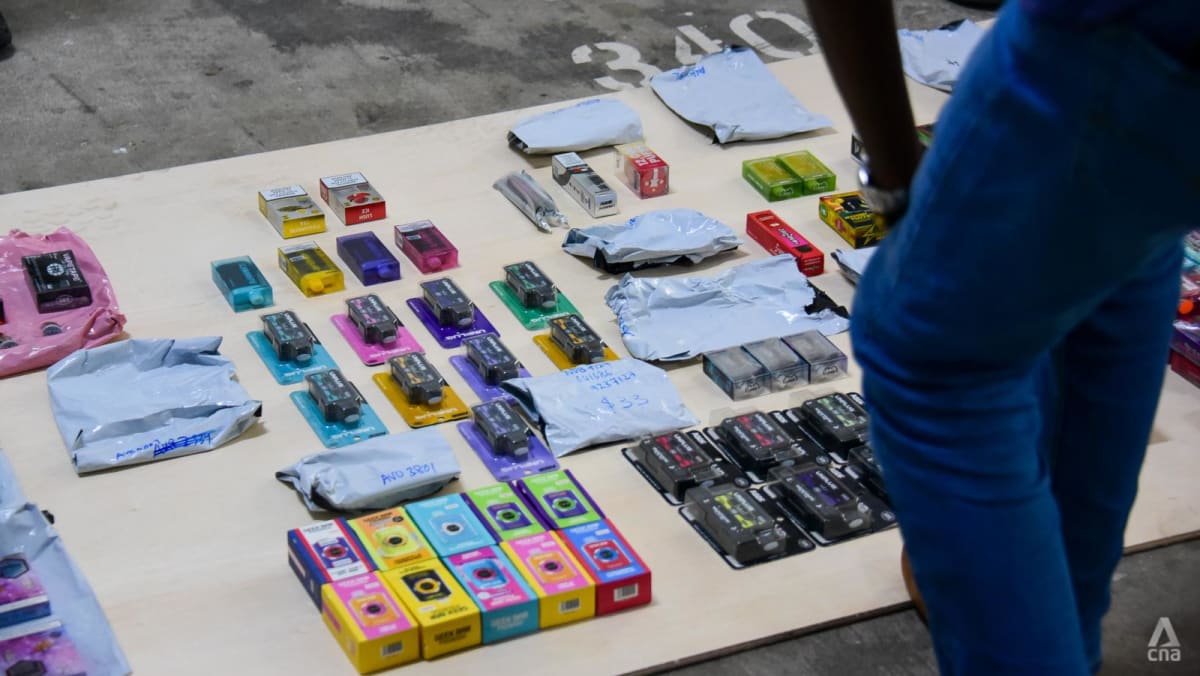SINGAPORE: Since March, students caught for the first time buying, using or possessing vapes will be referred to the Health Sciences Authority (HSA) and may be fined up to S$2,000.
This was announced by the Health Ministry (MOH) and HSA in a joint press release on Tuesday (Apr 9), with the new measure aimed at deterring youths from vaping.
The Ministry of Education (MOE) told CNA in December that when a student is caught vaping, schools will inform their parents and confiscate the prohibited product. Schools will also mete out appropriate disciplinary actions such as suspension, or caning for boys.
“Recalcitrant offenders may be referred to HSA, which may issue them a fine,” the spokesperson said.
From Jan 1 to Mar 31 this year, schools and Institutes of Higher Learning (IHLs) referred about 250 cases to HSA.
IHLs have been reviewing sanctions which include corrective work orders or mandatory community service.
The sanctions also include the revoking of hostel privileges for recalcitrant student offenders from autonomous universities who have been caught possessing or peddling vapes.
Schools and IHLs will continue their regular detection and enforcement efforts through internal reporting channels and campus patrols. These include joint operations by HSA and universities.
“For students who are caught vaping, in addition to the penalty imposed by HSA, schools and IHLs will continue to mete out consequences through existing disciplinary frameworks, such as suspension or caning (for boys in schools),” said the authorities.
“Students caught vaping will also be placed on cessation support programmes where counsellors will guide them through their cessation journey.”
CNA reported in December last year that some youths were starting to pick up the habit of vaping from as early as primary school, with sellers targeting younger people.
In addition to enforcement efforts, schools and IHLs are working with HPB to “amplify anti-vaping messages” in educational materials and preventive programmes.
They are also raising awareness of the harms of vaping, and providing cessation support for students who are caught vaping.
These programmes include QuitLine, a tele-counselling service, as well as on-site counselling by Student Health Advisors.
Last year, about 2,350 youths received smoking and vaping cessation counselling from these programmes, of which 38 per cent have either reduced or quit smoking and/or vaping one month after counselling.







